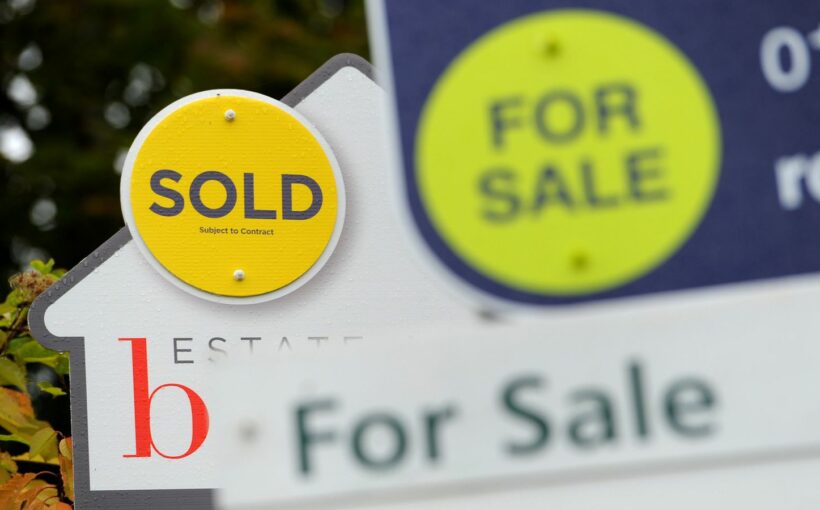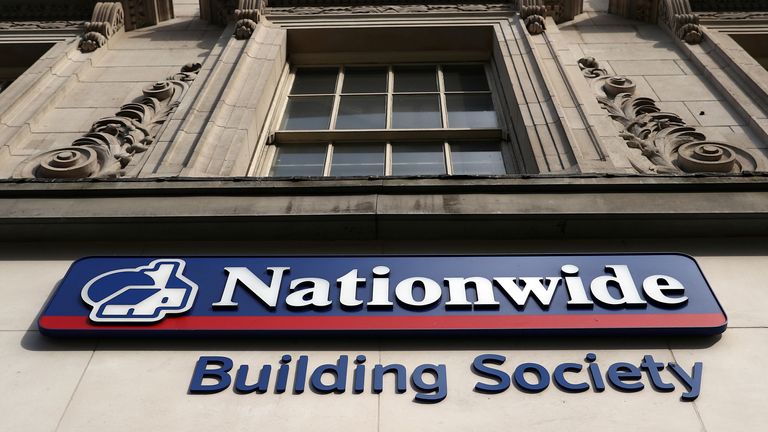House prices staged a surprise surge in August despite the winding down of Britain’s stamp duty holiday, according to new figures.
Prices rose by 2.1% over the month after falling by 0.6% in July, a report from lender Nationwide showed.
Year-on-year growth climbed to 11% and prices are now around 13% higher than when the pandemic began, according to the index.
Economists had expected to see annual growth to slow to 8.6%.
Nationwide said it might be explained by the fact that, while higher-valued properties are no longer eligible for the stamp duty holiday, it is still applies at the lower end of the market.
A lack of supply could also be helping to push up prices.
Britain’s housing market has been boosted since last summer by a nil rate on stamp duty for properties worth up to £500,000 in England and Northern Ireland, introduced by Chancellor Rishi Sunak to try to lift activity after an early-pandemic slump.
The threshold was reduced from £250,000 at the end of June and will fall back to its usual level of £125,000 at the end of September.
That initially resulted in a more subdued market and Nationwide reported that prices fell by 0.5% in July, now revised to 0.6%, while separate data this week from the Bank of England showed mortgage approvals dropping to the lowest level for a year.
Nationwide’s chief economist Robert Gardner said: “The bounce back in August is surprising because it seemed more likely that the tapering of stamp duty relief in England at the end of June would take some of the heat out of the market.”
He said the month-on-month gain of 2.1% was the second largest in 15 years – after the 2.3% rise recorded in April this year.
“The strength may reflect strong demand from those buying a property priced between £125,000 and £250,000 who are looking to take advantage of the stamp duty relief in place until the end of September, though the maximum savings are substantially lower,” Mr Gardner said.
“Lack of supply is also likely to be a key factor behind August’s price increase, with estate agents reporting low numbers of properties on their books.”
Mr Gardner said demand was likely to “remain solid” for now with consumer confidence rebounding, borrowing costs remaining low, and a lack of supply on the market.
He said the outlook for later in the year was harder to foresee, with the end of the stamp duty holiday and the winding down of the government’s furlough scheme – potentially pushing unemployment higher – dampening demand.
Yet he noted that the labour market had remained “remarkably resilient” while even if the jobs picture does weaken, the “shifts in housing preferences” caused by the pandemic – as families stuck at home during lockdowns sought bigger properties – could continue to power the market for some time yet.
Source: Read Full Article


